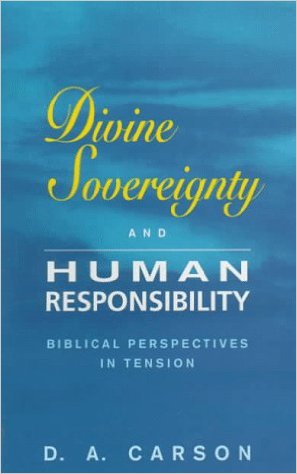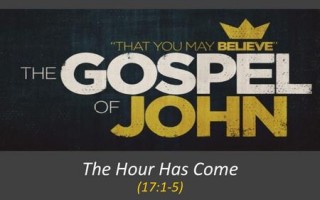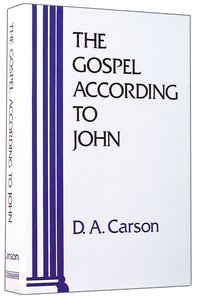As time permits, from time to time, I continue to skim one of D.A. Carson’s first books: Divine Sovereignty and Human Responsibility. Biblical Perspectives in Tension, Marshall, Morgan and Scott, London 1981. In this post I transcribe some quick input on “the hour” in John from pages 135-6 of that book. In a previous post I transcribed a tidbit that dealt with the Old Testament in the New in John.
Pp. 135-6: “The emphasis upon fulfillment in the passion narratives, as we have seen, stressed the inevitability of the death/exaltation event. This inevitability finds explicit confirmation in the ‘mustness’ (dei) both of Christ’s death (3.14; 12.34) and of his resurrection (20.9); and these things constitute the ‘hour’, toward which the fourth Gospel moves and with which it climaxes. At the beginning the hour has not yet come (2.4; 7.30; 8.20); by the end it has arrived (12.23; 13.30, 32; 17.1), the hour which embraces the purpose of Jesus’ coming (12.27). Until the arrival of that hour it is impossibile for anyone to take Jesus’ life (7.30, 44; 8.20). Not just the passion, however, but all of Jesus’ life is governed by express submission to the father’s schedule (2.4; kairos, 7.6, 8). This view may even be supported by John’s specific time references (‘it was such-and-such an hour’).”
“That Jesus can speak, in 12.23, of the hour as having arrived, and then continue to do so all the way to 17.1, suggests a theological motif which climaxes at the cross but which is [p. 136 starts here] present incipiently throughout Jesus’ ministry. For this reason, Jesus can speak of the hour coming, but being present now (4.23; 5.25), i.e. in his ministry. Beyond each of the exchanges within that ministry lies the climactic ‘now’ (12.31; 13.31) of this death/exaltation.”
“The fixedness of Jesus’ ‘hour’ does not turn on impersonal fatalism, but on the will of the Father, to which Jesus submits – unlike other men (7.6, 8; 12.23, 27f.). God’s personal rule is thus related both to the arrival of the eschatological hour and to the obedience of the Son. Johannine eschatology and christology must therefore be examined in connection with God’s sovereignty.”
The above quote is not technical, though the book is somewhat so. It is nonetheless readable if you regularly read exegetical and theological works. But don’t miss Carson’s commentary on John’s Gospel. You won’t regret purchasing and reading it.


